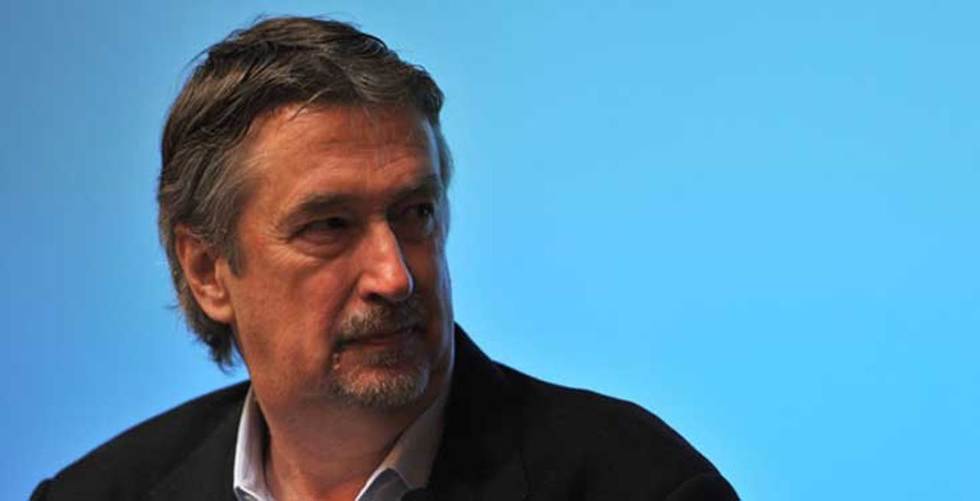
BY GEOFFREY GILMORE |
One Thing is Certain: Everything is Changing
Chief Creative Officer of Tribeca Enterprises Geoffrey Gilmore looks back at his recent industry discussions to resolve how best to look forward.

Over the last several weeks I’ve had the opportunity to be a participant on several panels and roundtables focusing primarily on the subject of the future of film, particularly on innovations in distribution and how to reach the marketplace.
Firstly, at this past Toronto Film Festival, a panel discussion with such industry heavyweights as Todd Wagner, (co-owner of Magnolia), Chris McGurk (ex-head of MGM and current CEO of Cinedign), and John Fithian (head of the National Association of Theater Owners) where the debate centered on the status quo of traditional theatrical exhibition vs. new strategies. Then, the following week there was a special Independent Film Project panel where I discussed the future of film festivals, distribution, and exhibition with the Sundance Institute’s Keri Putnam and The Film Society of Lincoln Center’s Rose Kuo.
Several days later we hosted a special roundtable conversation featuring some of Tribeca’s Future of Film bloggers. Together we analyzed a very broad spectrum of issues: the new use of social media in distribution, the definition of Transmedia, the changing nature of storytelling, and the advent of new pipelines of distribution and the possibilities of reaching new audiences. This group included innovative thinkers such as Jeff Gomez, Marc Schiller, Rich Greenfield, Aina Abiodun and Chris Dorr, as well as one stalwart from the past and analyst of the future, Ted Hope. Lastly, this past week at Hunter College I moderated a panel that began as a discussion of Asian Film and the world of Asian Film Festivals and ended up being a lively and provocative debate about the current state of the international film industry.
The point is that anytime one wants to talk about what is going on in the world of media, one has to address what is changing in it. The scope of the debate takes you from one subject to another without pause. You quickly move from arguments about Hollywood and independent film to transmedia and then onto a whole new world of international filmmaking.
The discussion includes everything from what one sees to how one consumes it. The kind of storytelling you engage with shapes your perspective. Distribution becomes not just a question of new pipelines or marketing strategies but a whole new analysis of who the audience is for what kind of media and how and when to reach them, and with what strategy.
Digital strategies are different for different kinds of storytelling. The strategy for a studio feature that will allow the film to engage a mass audience is not the same as the strategy that smaller films implement in order to reach niche audiences.
The problem with discussing innovation in film is that the new universe exists as a range of choices and options. It is not simply a movement from a world of analog to a world of digital. The direction for what the future will bring in one sphere is not necessarily the same for another. An optimal strategy for reaching a horror film audience on VOD is certainly different from trying to connect with film connoisseurs of Asian art cinema.
And so the one unforgettable caveat is that it becomes ever clearer that there is an urgent need for road maps and guideposts to enable a discovery of film diversity in the emerging digital realm.
If festivals are changing, distribution is transforming itself, audiences are evolving from one generation and its practices to another, and filmmaking itself is more eclectic and varied than ever, how does one make sense of the future? How does an audience find out about what all the options are? Young people learn the fastest, but even still they need to develop taste and sensibility. Indeed, how do we get a handle on all that is going on?
Perhaps it’s here that tradition reasserts itself, because more than ever the role of the film festival can be critical. As a forum for discussion, as a platform for film culture, as a curator of quality and perhaps even as an exploration of film aesthetic, the eclecticism and even seeming randomness of festivals can be extremely valuable.
Film has been one the richest, most gratifying, yet most serious arenas for viewing and understanding our selves and our society. In a universe that is ever more complex and obtuse, it is also a world that must embrace the future and the true variable scope of storytelling. Here’s hoping we do.